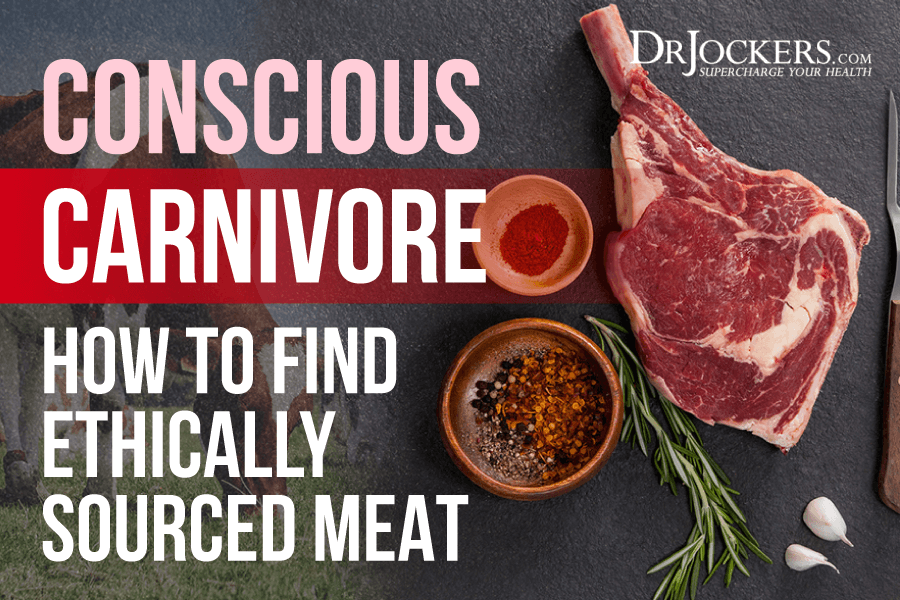 Conscious Carnivore: How To Find Ethically Sourced Meat
Conscious Carnivore: How To Find Ethically Sourced Meat
As humans, we’ve been eating meat ever since we’ve been around. It all worked fine for a long time until the meat industry took over and the mass production of animal food started leading to cheap and unhealthy animal products that are ruining our health and environment. Instead of relying on conventional meat, I recommend that you become a conscious carnivore and choose ethically sourced meat.
In this article, I will go over the problems with the meat industry and the health and environmental impact of CAFO meat. You will learn what a conscious carnivore is. I will share the health benefits of eating ethically sourced meat and I will share my favorite source of high-quality animal products.
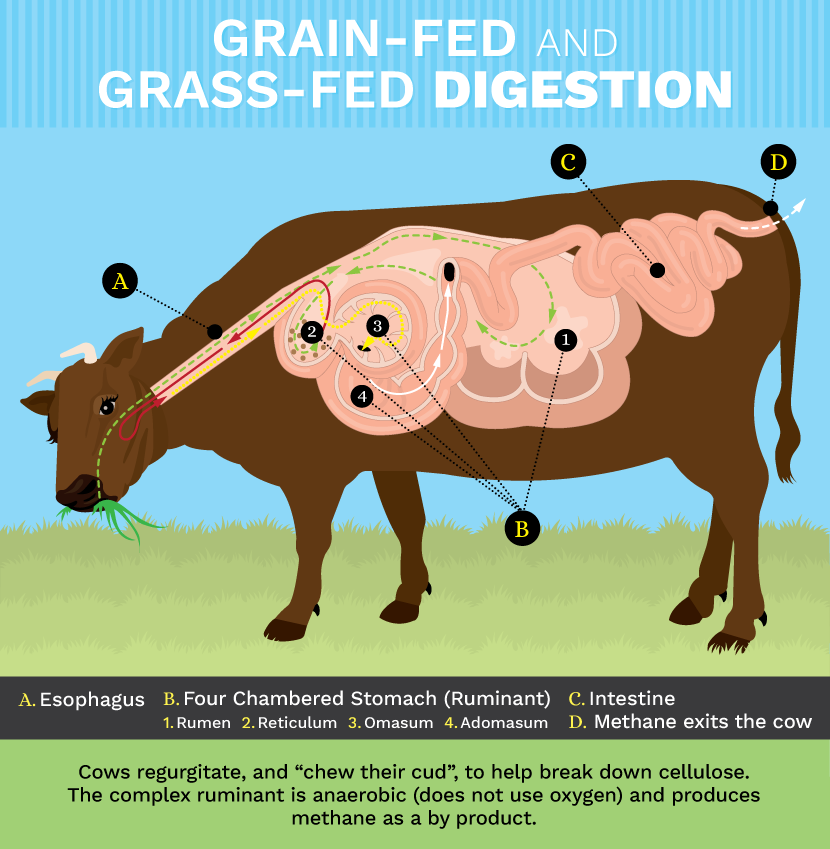
The Problems With the Meat Industry
The problem is that, while our modern-day meat industry offers cheap meat in your supermarket, this meat is low-quality and unhealthy, and the production has a negative environmental impact. Animals raised for food are kept in small areas or cages and given antibiotics and growth hormones to grow bigger faster for more cheap meat.
Instead of being fed a genetically congruent diet to grow healthy, they are given mono-cropped GMO grains and feed, which can have a serious negative impact on your health. This is not good for the animal welfare or for the humans who are eating these animal products.
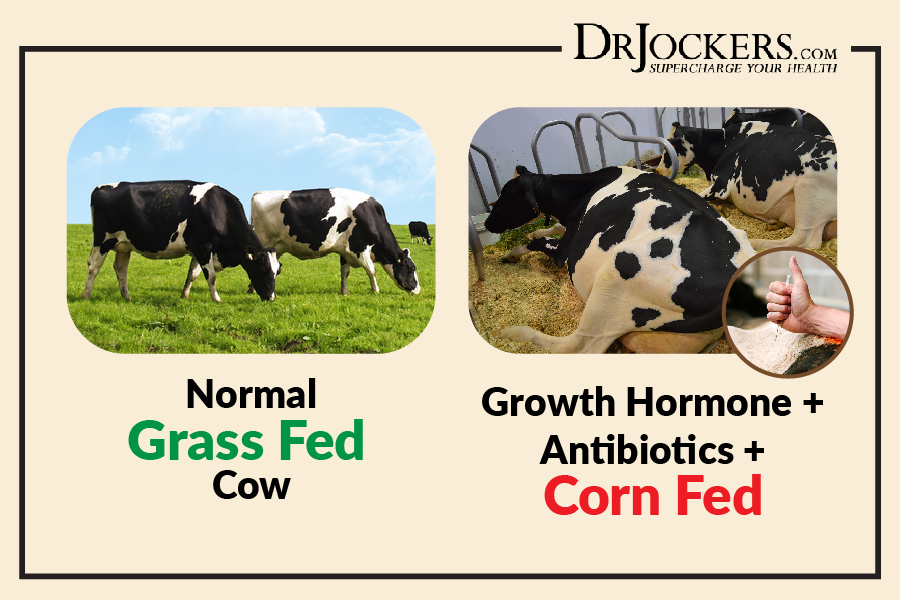
Health Impact of CAFO Meat
Concentrated animal feeding operation (CAFO) is bad for the animals, your health, and the environment. Here are the potential health impacts of CAFO meat:
Antibiotics, Pesticides, and GMO
According to a 2015 research article published in the American Public Health Association, antibiotic overuse in animal agriculture is rampant (1). Antibiotic overuse in our agriculture and our diet along with antibiotic overuse in modern medicine can lead to antibiotic-resistance and serious health risk. Conventionally-raised CAFO animals eat pesticide-filled or GMO animal feed which can harm your health.
Infections and Outbreaks
Animals in CAFOs are kept under unhealthy and dirty conditions, which is an invitation for viruses, bacteria, and other pathogens to spread. The food they are fed further instigates this problem.
According to a 2008 paper in Meat Science, animals that are fed GMO corn feed lose their ability to eject the E. Coli bacteria from their system (2). No wonder that E. Coli outbreaks connected to conventional animal products are increasing (3).
Risk of Disease
CAFO meat is less nutritious than grass-fed ethically raised meat. They are lower in antioxidants, omega 3 fatty acids, and conjugated linoleic acid (CLA) (4, 5).
They are also filled with antibiotics, hormones, pesticides, and GMO, which can increase your risk of inflammation, pain, hormonal problems, gut health issues, and chronic disease. For example, a 2007 study published in PLoS Medicine connected conventional meat conception with an increased risk of cancer (6).
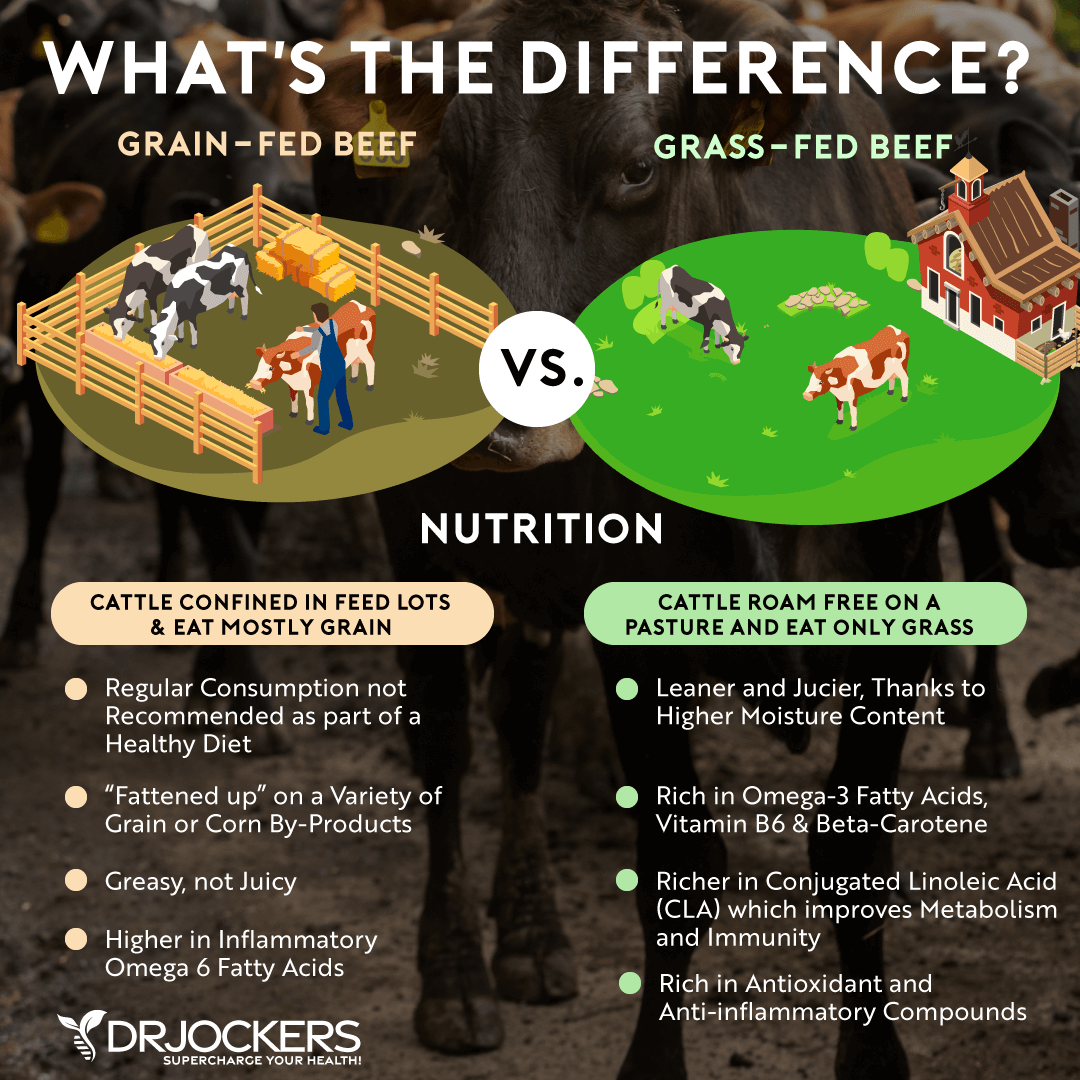
Environmental Impact of CAFO
CAFOs also have an enormous environmental impact. According to a report published on Water Footprint Network, the water footprint of animal production is much higher than the water footprint of crops (7). According to the Food and Agriculture Organization of the United Nations, animal agriculture may have a serious impact on our water quality due to pesticides, organic matter, metal, hormonal, feed additives, fertilizers, and pathogens (8).
The overproduction of livestock can also lead to deforestation and land overuse (9). CAFOs also contribute to greenhouse gases and global warming. According to a 2017 landmark study published in Climate, JBS, Tyson, and Cargill, the top three meat firms produced more greenhouse gases than the entire country of France (10). Check out the image on the carbon footprint of grass fed beef farms here from Fix.com
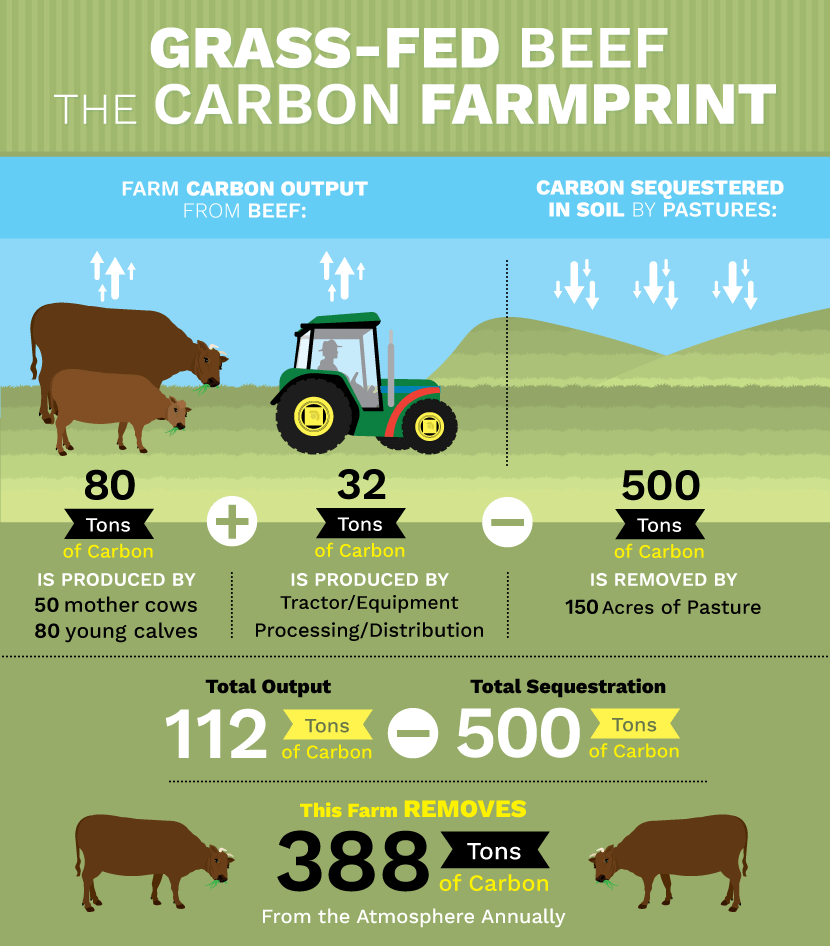
What is a Conscious Carnivore?
There are clear problems with our conventional meat industry. The environmental and health impacts of CAFO meat are undeniable. What is the solution? Becoming a conscious carnivore.
Being a conscious carnivore means that you are mindful of the food, including the meat and animal products you consume. You stay away from CAFO meat, because it can negatively impact your health, our environment, and the animals raised for food. Instead, you choose ethically sourced animal products, including grass-fed beef, pasture-raised poultry and eggs, wild-caught fish and seafood, and wild game.
When buying meat or animal products, look for labels such as 100 percent grass-fed, pasture-raised, USDA Organic, and USDA Humane. Grass-fed means that the animals ate nutrient-rich grass instead of grains and animal feed. This leads to nutrient-rich meat on your table.
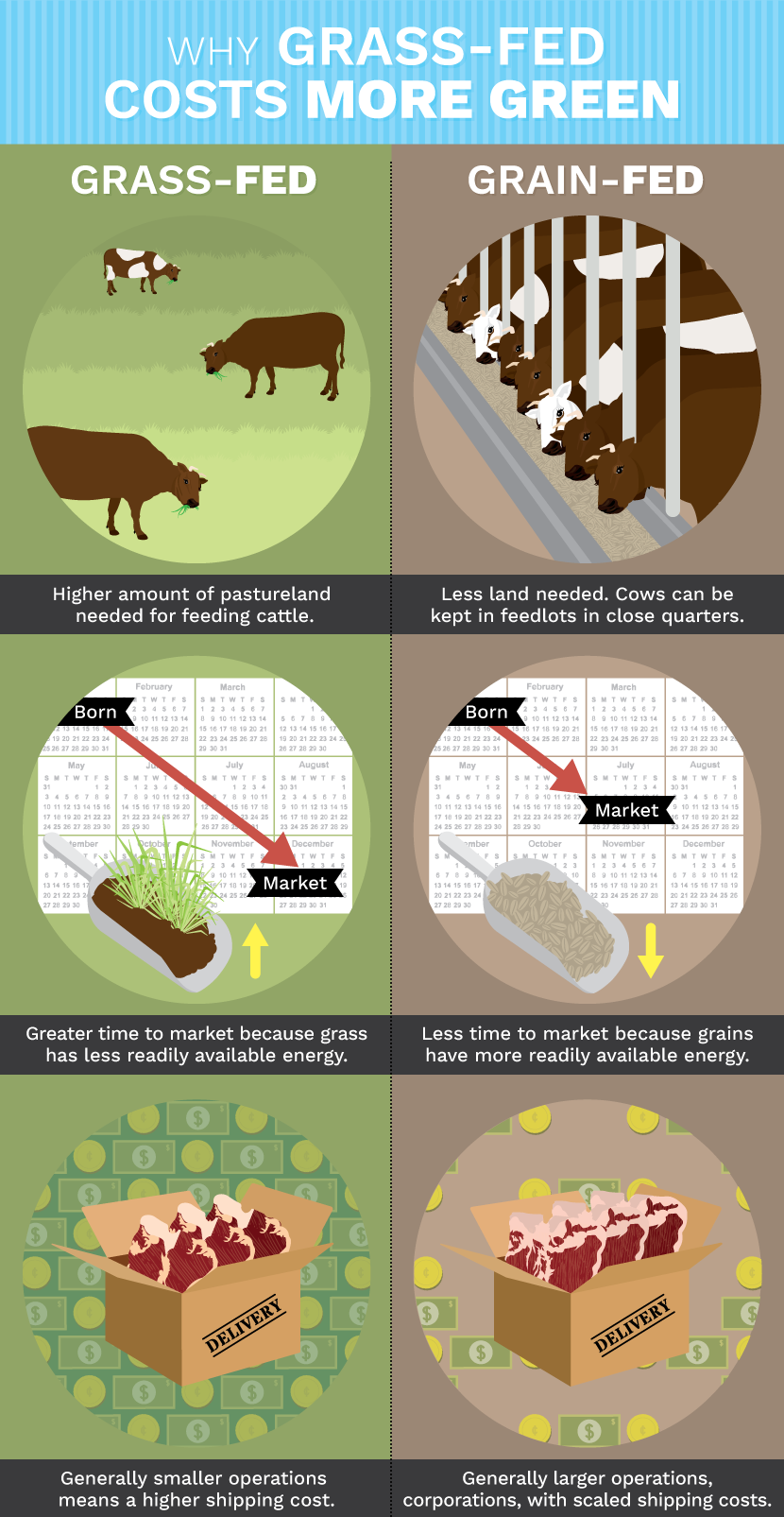
How a Conscious Carnivore Shops For Animal Products
Pasture-raised means that the animals were free to roam instead of living under unethical constraints. Organic means that the animals were born and raised on organic pastures. It means that there were no chemicals or other pesticides used on the grass or area they were kept (11).
This allows for organic, pesticide-free meat on your plate. USDA Humane means that the animals were raised ethically outdoors and the animals were only given antibiotics when sick (12). Animal Welfare Approved means that the animals were not given antibiotics or hormones (13).
These labels ensure that your meat is free from antibiotics and hormones. More importantly, buy from trusted farmers that care about your health, the health of their land, the well-being of their animals, and our environment.
As a conscious carnivore, you should also take a moment to be mindful and thankful for the food on your table. Express gratitude for your farmers who raised and grown your food, gratitude for your body for taking in all the nutrients, gratitude for your ancestors that have eaten a diet rich in animal protein, and gratitude for your family and friends that you are sharing your meal with.
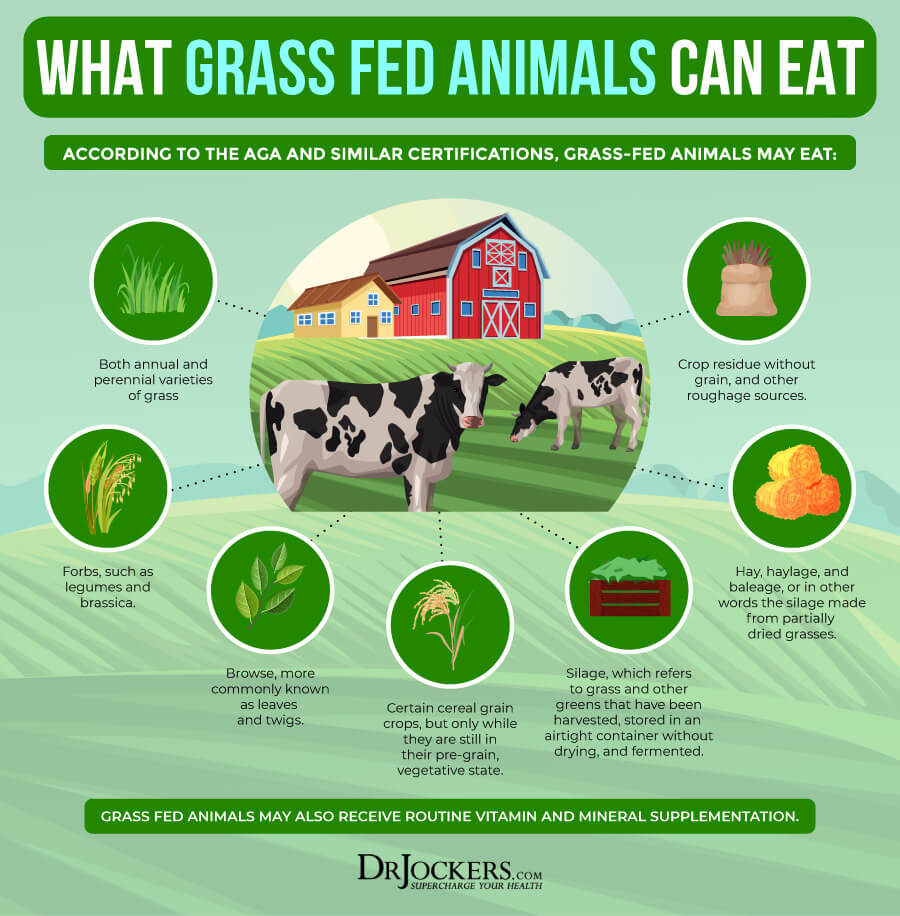
Health Benefits of Ethically Sourced Animal Products
Eating ethically sourced animal products ensures the more humane and ethical treatment of animals, allows animals to live free-range and graze nutritious food, reduces waste and pollution, promotes biodiversity, protects our watershed and habitats, uses less resources, and supports sustainability.
As a conscious carnivore, you not only benefit your health but you also support the environment. Ethically sourced animal products are more nutritious and free of antibiotics, added hormones, and GMO’s, and offer less risk of contamination of diseases (14). Ethically sourced animal products have a number of health benefits, including:
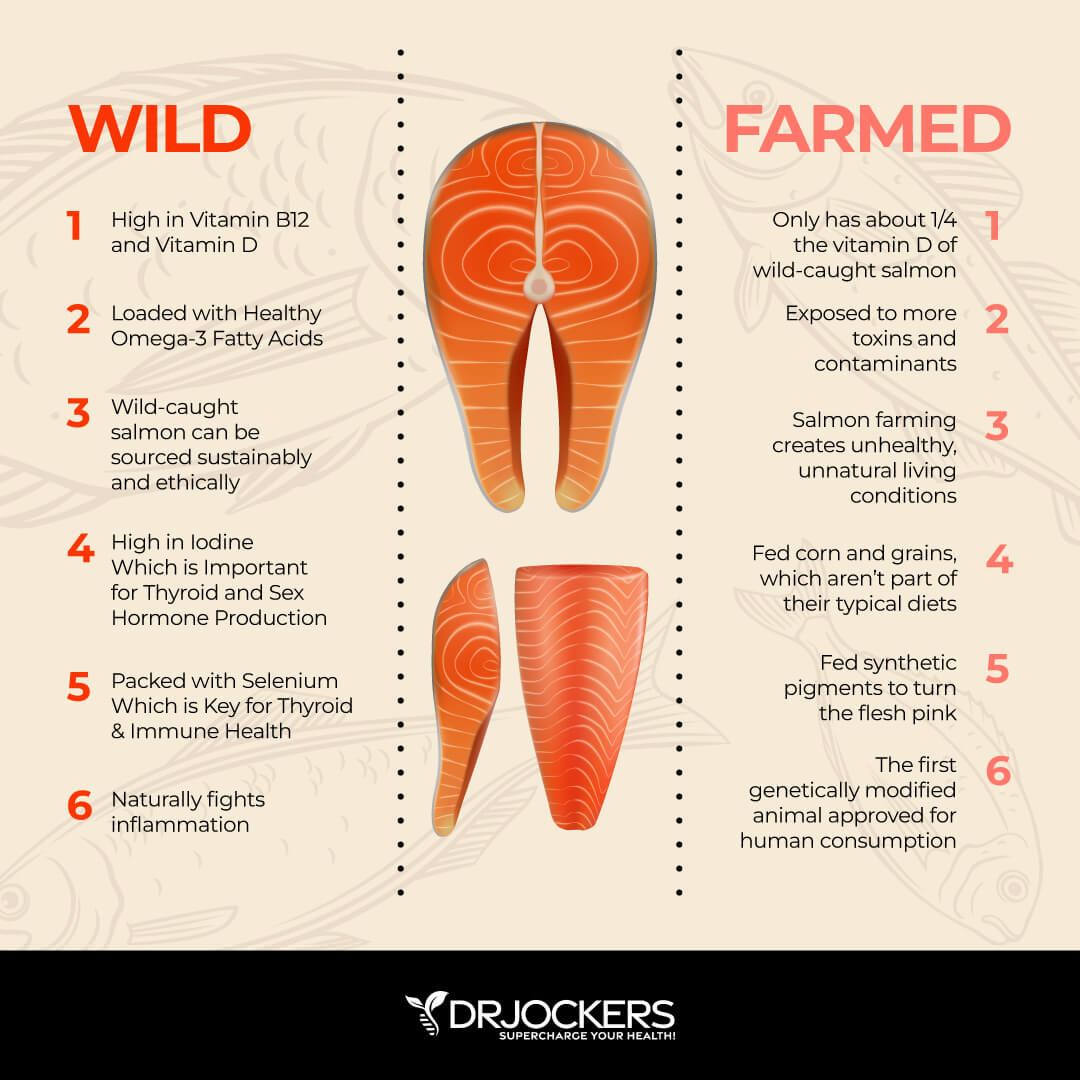
More Nutrients
According to a 2010 study published in the Nutrition Journal, grass-fed beef has a better antioxidant content and may help to improve the fatty acid (FA) composition compared to grain-fed beef (5).
Ethically raised animals also tend to contain higher amounts of vitamins and minerals because they receive the healthy nutrition they need and spend a healthy, natural, outdoor life that supports their health and the quality of your food.

No Antibiotics, Pesticides, and GMO
Antibiotic overuse in animal agriculture is rampant and CAFO animals are given pesticide-filled or GMO animal feed which can harm your health. Ethically sourced meat is free from antibiotics, pesticides, and GMO, which reduces your toxic load, risk of inflammation, and risk of antibiotic resistance (1).
Lower Risk of Bacterial Infections
Grass-fed animals have lower incidence of bacterial contamination and a lower risk of infections and outbreaks. According to a 2001 study in the International Journal of Food Microbiology, verocytotoxigenic Escherichia coli (VTEC) infection was not found in grass-fed outdoor calves but was found in indoor ones (15).
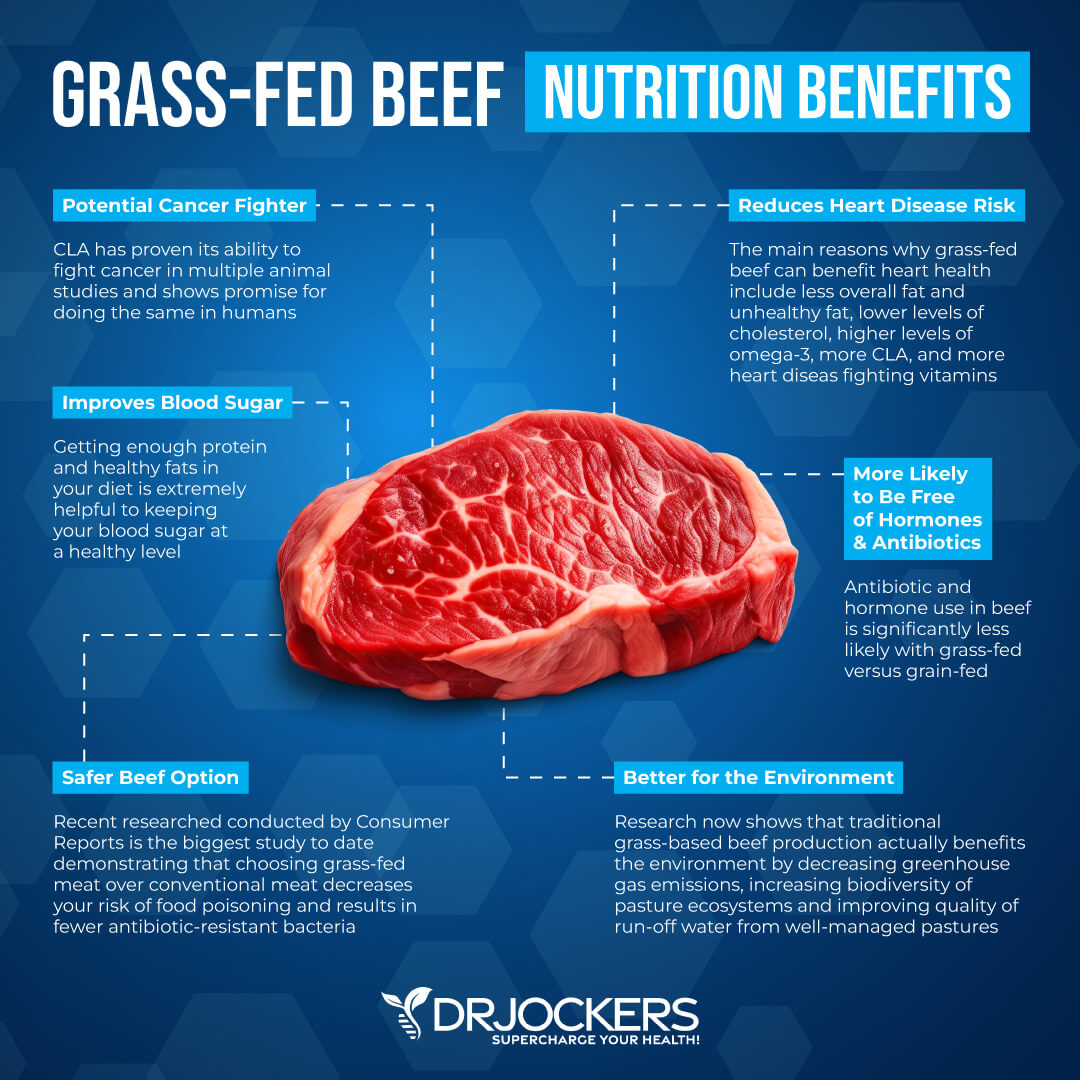
Lower Risk of Disease
Eating ethically raised animal products, you will receive high-quality protein and nutrition. They are not only-free from inflammation and disease-triggering antibiotics, hormones, pesticides, and GMO, but they also protect your health through healthy nutrition.
Being high in omega-3 fatty acids and CLA, eating ethical meat may reduce your risk of inflammation, oxidative stress, obesity, heart disease, diabetes, and cancer (16, 17, 18, 19, 20, 21, 22).
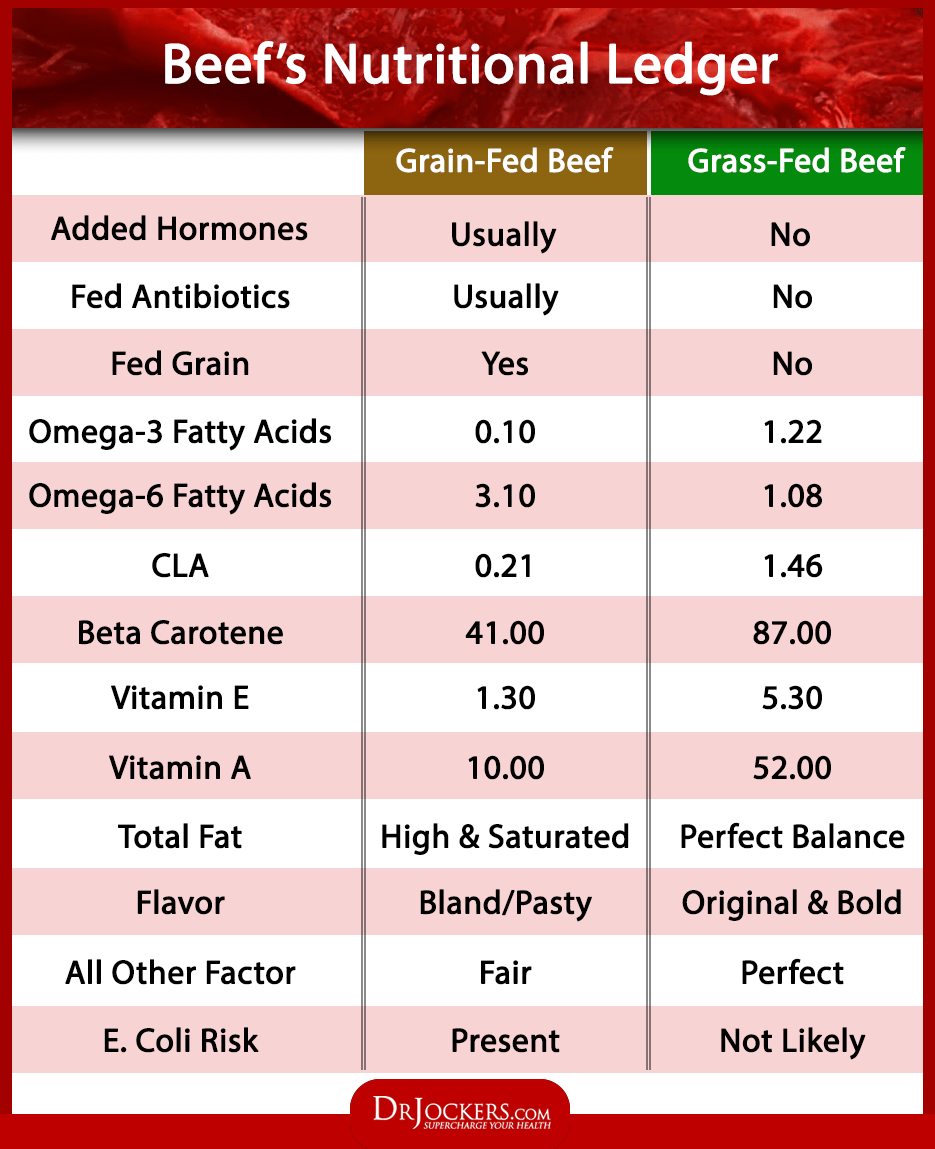
Where I Get The Highest Quality Animal Products
My family and I are true conscious carnivores and eating the highest quality animal products is non-negotiable for us. My family gets our meat from a variety of places including local farmers in our area as well as several places we order online.
My favorite place to get grass-fed and grass-finished beef from is Wild Pastures, which provides the highest quality meat products from farmers who take great care of their land and their animals. By partnering with a network of small, local farms across the country and buying in bulk, (absolutely no imported meat or factory farms!), they are able to charge less than competitors – while offering higher quality, fresher meat.
Here are the reasons why I LOVE using Wild Pastures
- High-Quality Meat: Delicious 100% grass-fed beef, pasture-raised chicken, heritage-breed pork, and wild-caught seafood.
- Unbeatable Value: Average cost = Less than $7 per meal.
- Flexibility: Box options and delivery frequencies to fit your needs, cancel any time with no penalty.
- Convenience: Great-tasting, high-quality meat you can feel good about, delivered right to your doorstep (FREE shipping).
- Decisions That Make a Difference: Wild Pastures cares about animals and our planet, improving livelihoods for farmers and better meals enjoyed together.
How Wild Pastures Works:
- Wild Pastures sources from farmers and fishermen who meet the highest standards for quality.
- You choose your box and delivery frequency. They offer curated and customized boxes, so you get exactly what you and your family love.
- Wild Pastures ships your order, frozen at the peak freshness and packed in an eco-friendly, 100% recyclable box.
- You enjoy high-quality meat delivered to your door and more time for amazing meals together.
If you sign up for Wild Pastures today, you can get $100 off (($20 OFF your first 5 boxes!)
Final Thoughts
There are serious problems with our meat industry. CAFO meat has great negative health and environmental impact. It is really important that we have a national conversation on how we raise and produce our animal products.
If you choose to eat meat, it is best to be a conscious carnivore and choose ethically sourced, high-quality meat products instead, for your health and for our environment. If you enjoy learning about cutting edge nutritional science, you may be interested in my advanced nutrition and recipe book the Keto Metabolic Breakthrough.

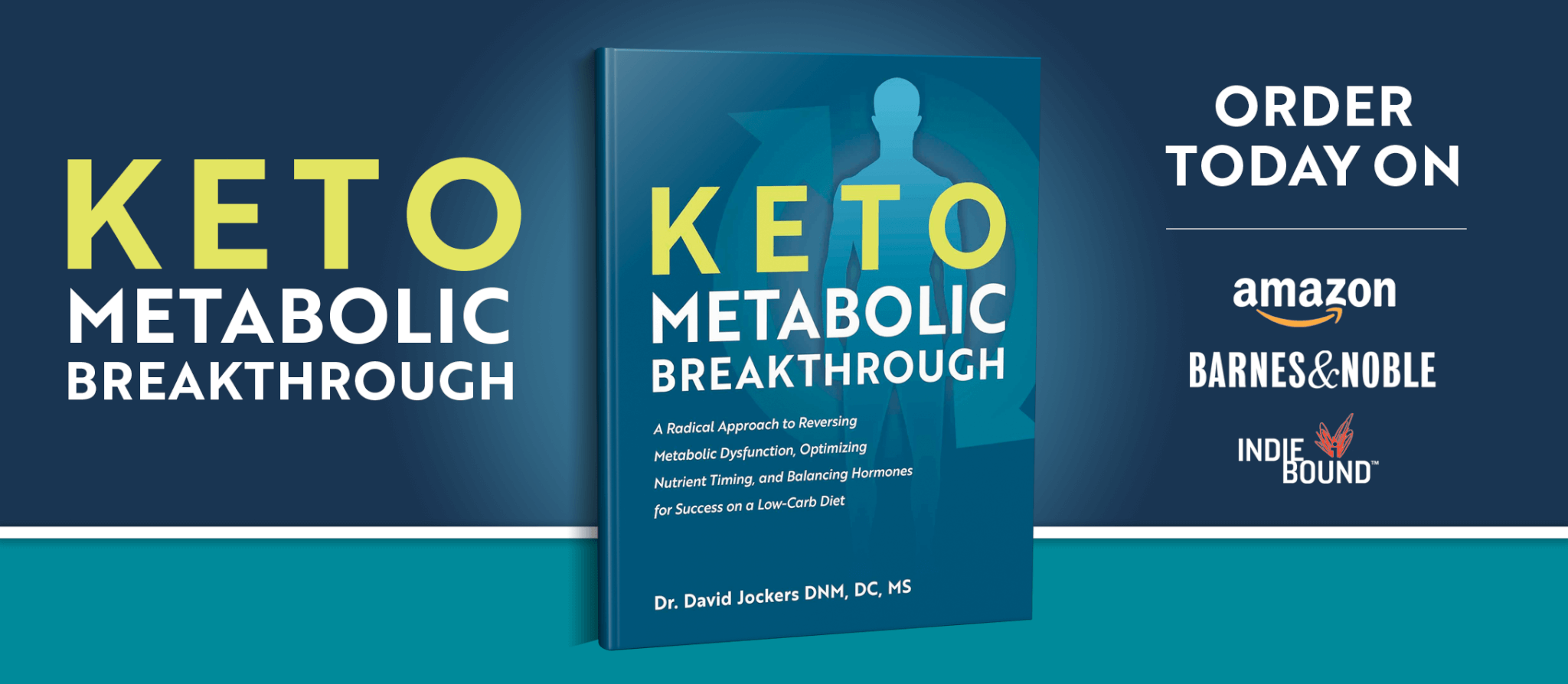



Good article on an important topic. In addition to being thankful to the farmers and family I would also suggest being thankful to the animals themselves, especially as conditions in factory farms are pretty abhorrent (look it up if you have a strong stomach and want more motivation to eat ethically-sourced animals)
To Dr. Jockers, have you read the work of Dr. Salidino, namely “The Carnivore Code” which makes the case that is important to eat organ meats for optimum health? You might make a good guest on his podcast, it would be good to get your work more out to the public I think.
Yes for some folks a meat centered diet can be very helpful! He would be a good guest to trade podcasts with. Thanks for the suggestion. Blessings!
You are very welcome, and thanks again for your good work 🙂
I would like nothing better than eating healthy meat; but cannot afford U.S. Wellness Meats. Are there any other companies that might be more affordable for older people on a fixed income?
I would look for a local farmer in your area.
What is the best way to cook beef like hamburger, rib-eye, etc. I just started eating beef (100% grass-fed) after 40 yrs. and have been using a stainless steel fry pan with some ghee or coconut oil. I read somewhere that it shouldn’t be cooked over 320 degrees for health reasons. What is a safe way to cook beef parts?
Yes you can grill it up in butter on a stainless steel pan and try to cook in such a way that you don’t get the blackened regions – so low and slow is best.